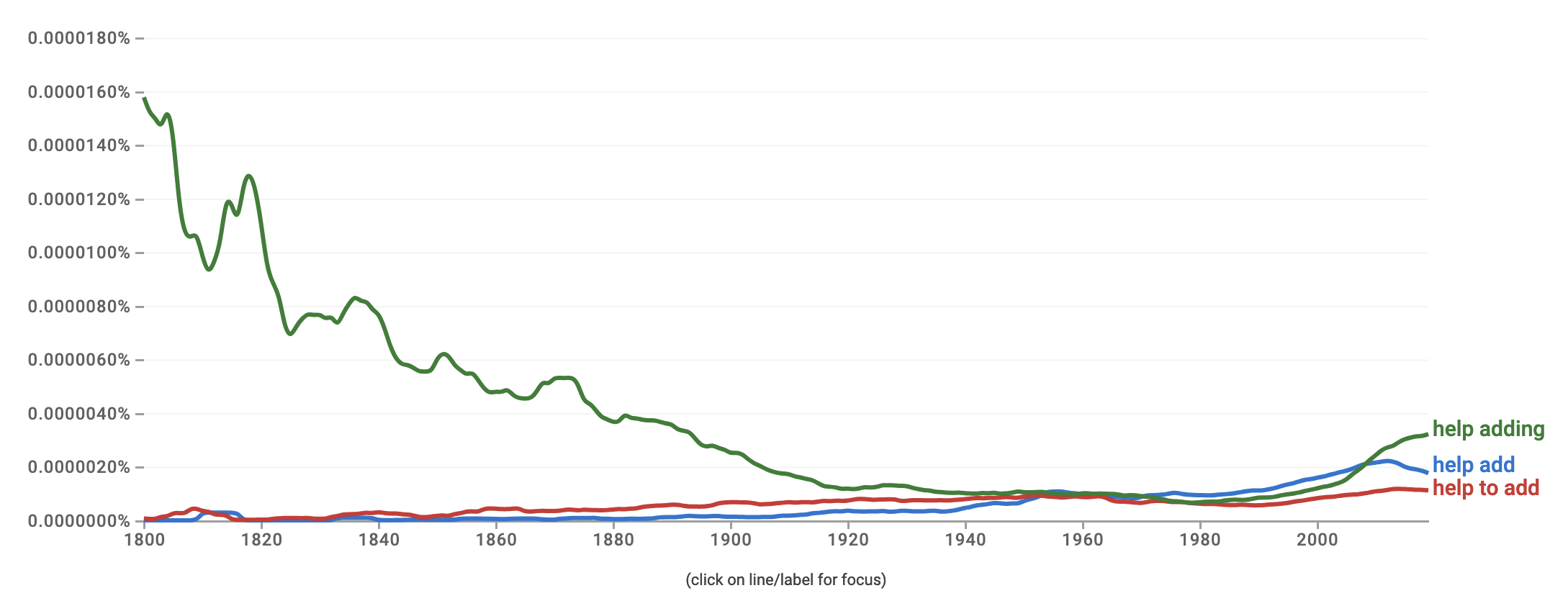Help allows both a plain infinitival complement and a to-infinitival complement when it's a verb. The -ing clause as complement is marginally acceptable at best.
In the Corpus of Contemporary American English the results for 'he helped...' are as follows:
- plain infinitival 329
- to-infinitival 232
- -ing clause 2
Only one of the -ing clause examples could actually be argued as a complement to help.
Snape's logic and deductive reasoning skills were such that he helped protecting the Philosopher's Stone by creating an obstacle (Harry Potter Wiki)
The Cambridge Grammar of the English Language has verb help on p1229 as allowing to-infinitivals and bare infinitivals, but not gerund-participials (-ing clauses).
Then again, ngrams gives 'help adding' as quite a common colocation, more so even than 'help add' or 'help to add':
However, most of these hits are noun uses.
In fact, when a noun, help can be followed by -ing clauses. The string 'some help doing something' returns 251 hits in the Corpus of Contemporary American English. These are quite acceptable:
Want some help finding that dog?
I knew you'd need some help keeping it real.
Maybe he'd like some help cleaning it out.
Then there's also can help in non-affirmative contexts which only licenses -ing clause complements (CGEL p1232) as in No one can help liking her. These make up the vast majority of hits for 'can help doing something' in the Corpus of Contemporary American English.
In the sentence given though, help is quite definitely a verb, and used in an affirmative context, so it would be best to have either a plain infinitival or to-infinitival following it.
Another possibility, as others have mentioned, is the solution of adding a by before the -ing clause to make it an adjunct of means, which in this case may be preferable if the person helping is in fact adding all of them; however, helping add them, or helping to add them by adding some but not all, is also perfectly possible.

